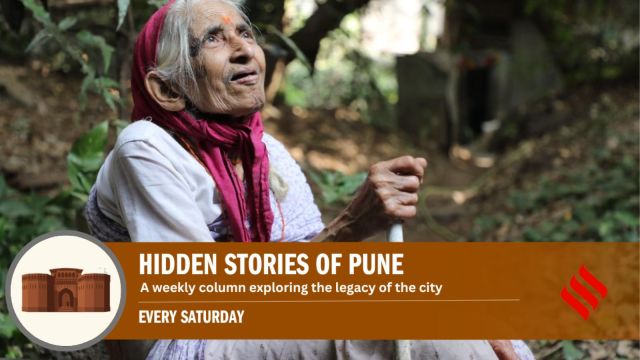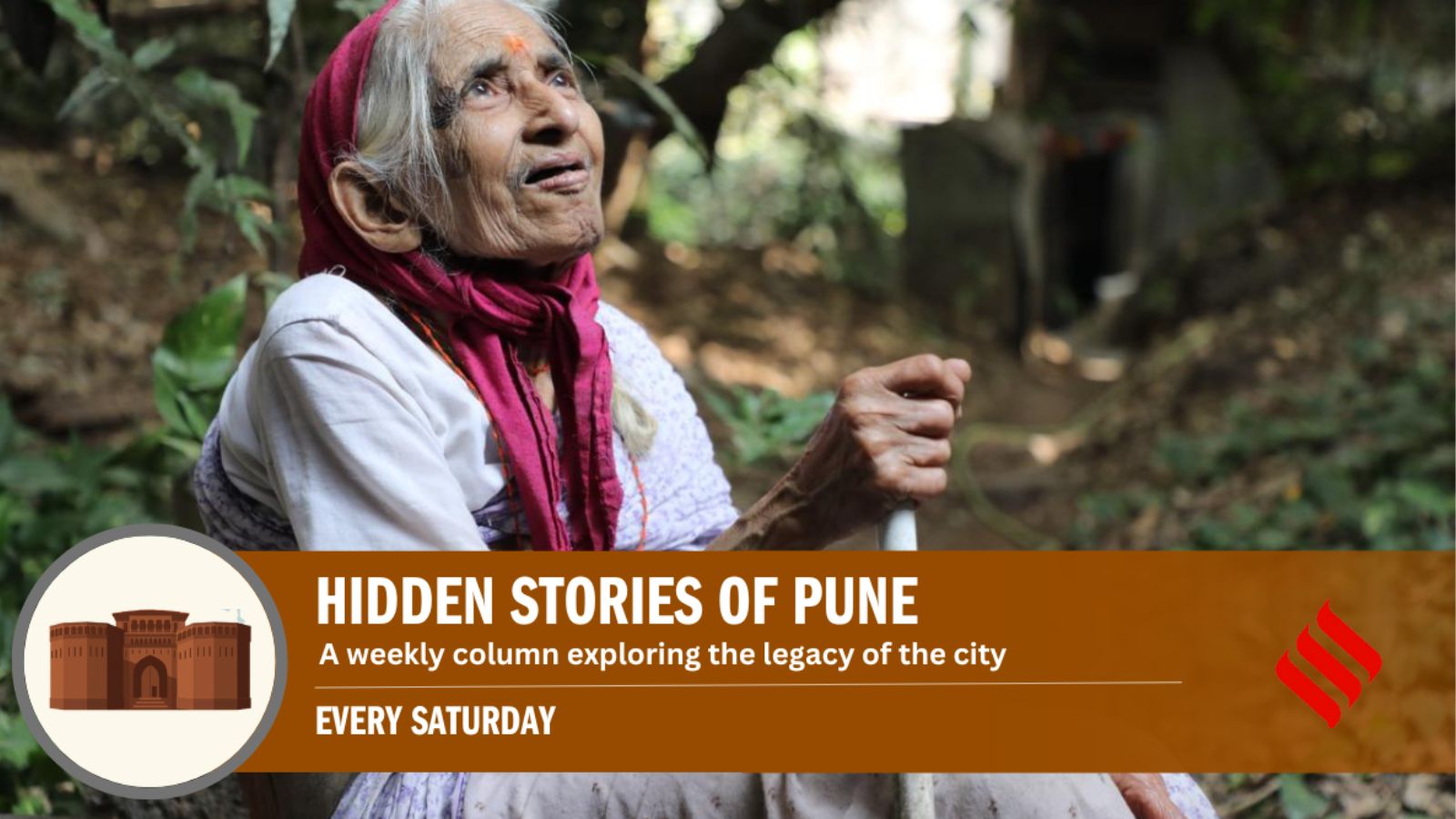 Sane, 83, a professor who taught Botany at Garware College from 1962 till her retirement in 2000 and continues to publish academic books on the subject, has been living here since she was born. (Express Photo by Arul Horizon)
Sane, 83, a professor who taught Botany at Garware College from 1962 till her retirement in 2000 and continues to publish academic books on the subject, has been living here since she was born. (Express Photo by Arul Horizon)
The directions to Hema Sane’s residence include a big peepal tree. “Next to that, you will find a house which, you will believe, nobody stays in. That is my house,” she says. Or, ask any bookseller in Budhwar Peth, and they will guide you to a once-sturdy door that is now shaky and a low, grey wall behind which rise trees that the eye could miss among the buildings that crowd this commercial part of the old Pune city.
Sane, 83, a professor who taught Botany at Garware College from 1962 till her retirement in 2000 and continues to publish academic books on the subject, has been living here since she was born. She adheres to a lifestyle that was once considered normal, which then turned unusual and is now intriguing as sustainability becomes a global buzzword. For one, Sane has never had electricity in her home. For another, she has never missed it. Her three cats do not mind.
Cut the clutter
Sane owns two saris for regular use and a couple more for occasions when she was called to give a lecture or receive awards. In her one-room house are discarded invoices from bookshops, on which she writes books and articles by hand. A four-storey wada had housed four generations of her family but, when it was reduced to ruin, Sane planted trees that are, today, visited by birds and squirrels. There is also a family of mongoose. The retired professor says she sleeps soundly because the well contains spiders that eat mosquito larvae and her only possessions are books that no burglar would want.
“My wicked, wicked way is dear to me. My surname Sane is also pronounced as sane, so we are sane or insane,” she says. She laughs frequently and rattles off statistics on greenhouse gases, the key ingredient of the climate crisis, and events from history and mythology about eco-friendly living. “Emperor Ashoka was one of the first to declare rules for the protection of the environment. We only know of Gautam Buddha but there were 27 others before him and each had his wisdom tree,” she says.
 “I do not fear loneliness because I have a radio, whose double batteries can last two months,” she said. (Expres Photo by Arul Horizon)
“I do not fear loneliness because I have a radio, whose double batteries can last two months,” she said. (Expres Photo by Arul Horizon)
While governments tackle the climate crisis and countries like India focus on renewable energy, such as solar power, Sane has mastered the ways of a solar lamp. In her childhood, it used to be a kerosene lantern by the light of which she completed her PhD from Pune University and then an MPhil in Indology. “I did Indology after I began studying ancient Indian history and culture one summer as I didn’t know what to do during the holidays,” she says.
When electric grids began to appear in Pune, the Sane family saw no need for it. “For generations, we had lived without electricity and I decided not to change anything,” she says. Students have come to her house and studied after dark by the light of lamps. “I have never needed spectacles,” adds Sane. Because she has no fridge, she cooks only as much as she needs so that there is no wastage. To visitors who wonder at her lifestyle, she responds, “For me, not having electricity is as simple as your having electricity.”
Sense of togetherness
Every afternoon, Sane’s friend Mrudula Pathak visits her with lunch. Most evenings, Manish Agarwal, the manager of Vision Publications, drops by. Locals stop to chat. The sense of community emphasises the importance of sharing resources. Agarwal, for instance, surfs the internet on his phone to fill her with information about a topic she might have come across in a newspaper or magazine. “I do not fear loneliness because I have a radio, whose double batteries can last two months. I listen to classical music and I have focused my energies on studying and writing about my subject Botany,” she says. Her books include ‘Kahani Masalayanchi’, a story of spices; ‘Marg Shashwat Vikasawa’ on sustainable development, and ‘Buddh Parampara Aani Bodhivriksha’ on the trees of Buddhism.
 Among the few signs of modernity in the house include an LPG cylinder that has replaced coal, which was traditionally used for cooking. (Express Photo by Arul Horizon)
Among the few signs of modernity in the house include an LPG cylinder that has replaced coal, which was traditionally used for cooking. (Express Photo by Arul Horizon)
“The world is heading towards extinction. What is sustainable development? It is to use resources in such a manner that we will satisfy our needs as well as care for the needs of the next generation,” Sane adds. In the voice of a teacher drilling a subject into a student, Sane says everyone can take six important steps — “Number one is Refuse. This regards plastic bags and using vehicles when you can walk. If it is not possible to refuse, Reduce consumption,” she says. The other Rs are Reuse, Recycle, Restore and Respect.
Among the few signs of modernity in the house include an LPG cylinder that has replaced coal, which was traditionally used for cooking. When she was working, Sane rode a Kinetic Luna scooter. The world was already changing and she could feel the heat radiating from the road under her feet. Today, she does not step out due to her age but knows that 2023 was the hottest year since records began to be kept in 1850. “But I live in an oasis of oxygen,” she reminds us.
© The Indian Express Pvt Ltd
First uploaded on: 03-02-2024 at 11:23 IST


